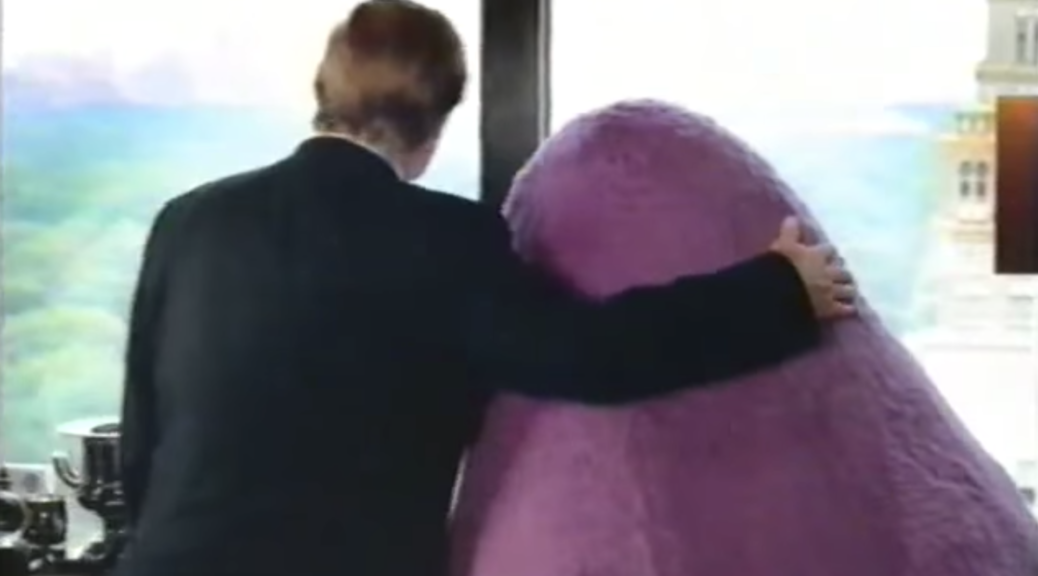There are three things we know for sure about Donald Trump: he watches TV constantly, he loves fast food, and his brain stopped processing new information circa 1989. There may be some other things we could learn about him; it’s impossible to say for sure! Nevertheless, deductive reasoning tells us that someone who’s spent so many hours of his life absorbing cathode radiation while ingesting processed swill, and whose mind has been spinning its wheels in a ditch for 30 years, must have lots of opinions about TV commercials from that era, and the various fast food icons contained therein.
Trump has occasionally shared his thoughts about ad mascots he dislikes, but these are mere tantalizing morsels compared to the buffet of thoughts he must have on the subject. Sure, some people say it’s a disturbing sign of sundowning when we see the president wander off aimlessly at official events or hear him rambling like a senile dolt through an interview. But for all we know this seemingly demented behavior is just his great mind preoccupied with thoughts like, Whatever happened to stuffed crust pizza?, or What in god’s name is Grimace? To present the answers to these burning questions, here is a completely scientific compendium of advertising figures of the Oliver North era, with a definitive determination of Trump’s opinion on each.
Note: For the purposes of this piece, the definition of “fast food” has been expanded to its absolute breaking point to include anything that could possibly considered junk food, snack food, etc, so that you, the reader, may enjoy a vague premise stretched to transparent levels of thinness.
Business Tycoons
Trump’s favorite fast food mascots of the 1980s are the ones who embody the spirit of Business Deals. Be they human, animal, or miscellaneous, these spokes-entities know what they want and will stop at nothing to get it. He deeply respects the version of Barney Rubble seen in the Fruity/Cocoa Pebbles commercials, a caveman who did not let a lifelong friendship with Fred Flintstone get in the way of obtaining precious cereal by any means necessary, be it finely honed rapping skills or masquerading as a starving mother.
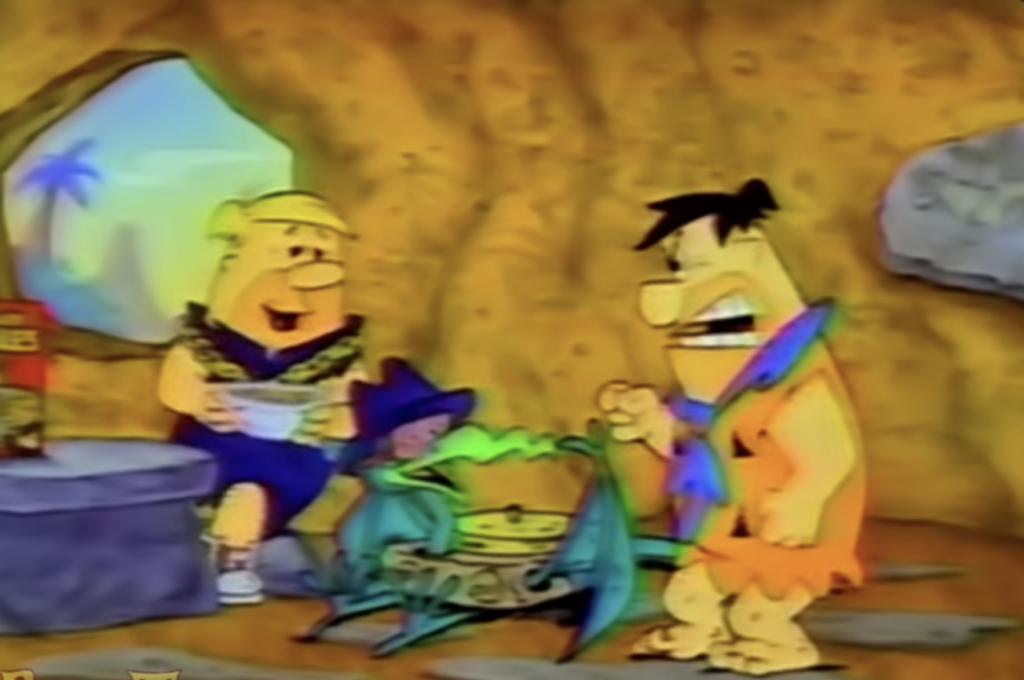
Like most tycoons, Trump considers government regulations to be oppressive impediments on the free market, and he loves people who dare to flout bureaucracy and operate in the gray areas of the law, where all the best deals are made. These are men of action like the Hamburglar and the Cookie Crook, capitalist heroes defying red tape to grab their slice of the American pie. Some might call blowing up a train “mass murder,” but the Cookie Crook does not let conventional notions of morality hold back his entrepreneurial spirit. The Hamburglar not only refused to heed liberal notions of what constitutes “theft,” but he also had the foresight to disrupt the hidebound higher education system, just like Trump did!
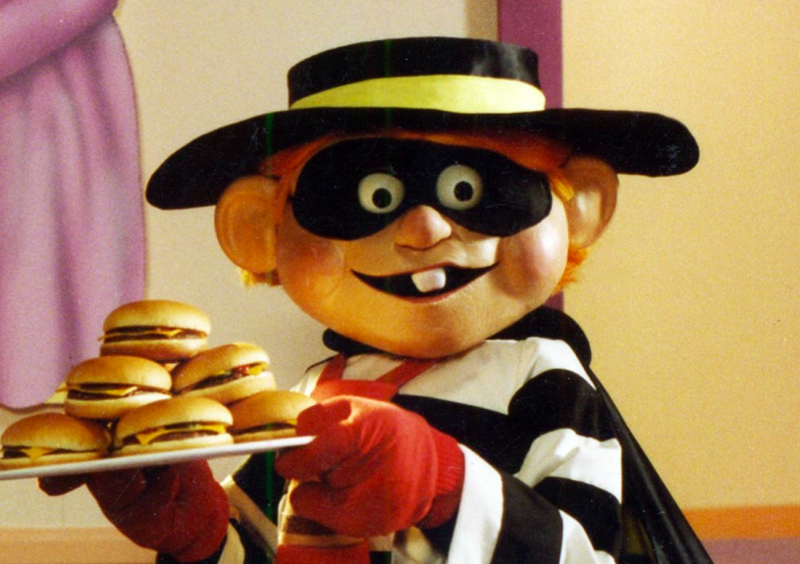
Trump has called for violence against his political enemies, so he appreciates those who are willing to roll up their sleeves to make their points. This includes Punchy of Hawaiian Punch fame and the Kool-Aid Man (despite his outspoken stance against walls).

Losers
The flipside to Business Tycoons are Losers, the worst thing a person can be, in Trump’s view. The Loser label can be placed on outright failures, but it can also be applied to people who show any signs of remorse or humility—the two greatest enemies of the business tycoon! Losers include mascots like Sonny Cuckoo, whose self control is so lacking he is driven insane by the slightest sight of Cocoa Puffs. Trump hates the Trix Rabbit even more, because not only does he lose his mind in pursuit of his quarry, but he never even gets to taste it. He reserves equal contempt for Charlie Tuna, who debases himself in every commercial by begging Starkist to murder him. Messy Marvin, Hershey’s chocolate syrup’s disgusting urchin who destroyed everything in his path, is a perfect object of hatred for Trump—his name even sounds like a Trump twitter insult.
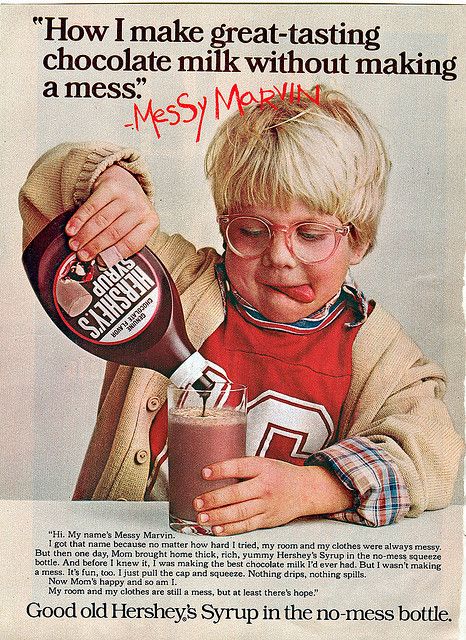
Among Trump’s most hated fast food icons is Herb. Herb was once the only man to never eat a Burger King burger, but after a series of commercials painted him as a strange bumbling idiot for this failure, he finally caved to peer pressure. As Trump would tell you, admitting a mistake only makes you weaker! Sure enough, after his craven about face, Herb proceeded to appear in Burger King commercials and do the franchise’s bidding like the emotionally needy little nerd he was. He even made other people rich doing it!
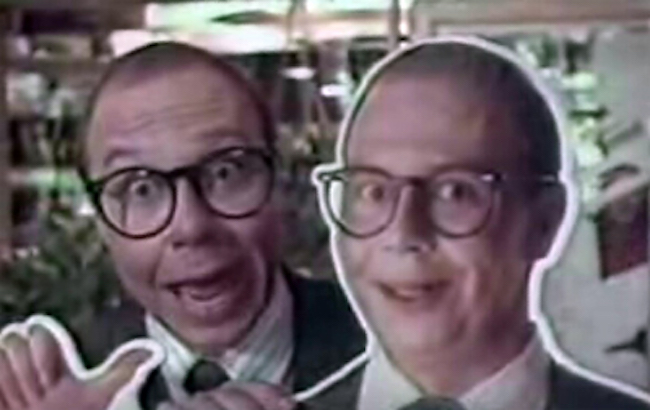
Trump’s most hated loser of all is the Noid, would-be ruiner of Domino’s Pizza. It’s bad enough, in his book, that the Noid has dedicated his pathetic life to destroying one of Trump’s favorite food groups (wet), but on top of all that, the poor schmuck never even succeeds! Pathetic.
Party Animals
Like other members of New York’s yuppie generation, Trump worked hard and played harder. This was of a piece with the new conservatives that rose with Reagan, who sought to shed the button-down image of the GOP and replace it with the Mardi Gras plutocracy championed by neocon thinkers like P.J. O’Rourke and Lee Atwater. For this reason, Trump respects that uniquely 1980s species of fast food imagery: Party Animals, the mascots who promoted 24/7 fratty excess as the path to enlightenment for America’s new class of corporate raiders and Wall Street wolves.
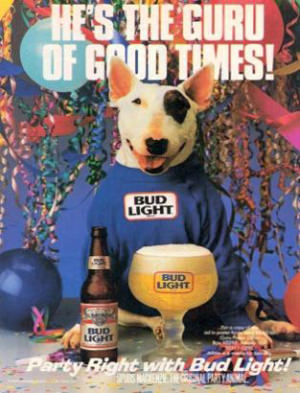
The quintessential 1980s example of this is Spuds Mackenzie, the Bud Light spokes-dog who apparently bedded a bevy of bikini models despite being a bull terrier. However, Trump is a teetotaler and is also uncomfortable with gender fluidity implied by the Spuds character (as it was portrayed by a dog who was actually female). Therefore, he prefers another 1980s Party Animal icon: Joe Camel. Trump doesn’t smoke either, but he does appreciate Joe Camel’s pushing of a thoroughly un-PC consumer good, his proto-Bikers for Trump esthetic, and his early championing of cryptocurrency.
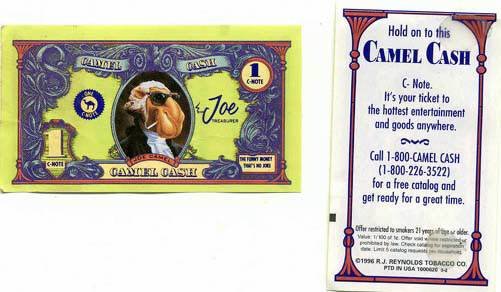
Trump loves Chester Cheetah for embodying much the same spirit and style as the smoking dromedary while shilling for a product that’s almost as bad for you as unfiltered Camels. Trump also appreciates the mission of Chuck E. Cheese, the creator of pizza restaurants/arcades that are basically House of Blues with training wheels. But few icons represented Reagan Era partying more than the Sassy Grandma archetype, and the ne plus ultra of these was the Where’s The Beef Lady, who demanded bottomless troughs of processed beef—as all red-blooded Americans should, rain forest be damned—with a PG-13 slogan and dessicated voice that delighted a coke-fueled nation.
Do Gooders
The Party Animal esthetic of the 1980s was, in part, a reaction to “healthy” movements that began in the 1970s. Health food, jogging, anti-smoking, ecology—all pursuits practiced by self-satisfied liberals and all loathed by the Reagan era cigar-and-bourbon conservatives, who ate mounds of garbage and snorted baguette-sized rails as acts of political defiance.
Trump despises these Do Gooders, which includes the icons for products that purport to be part of a balanced breakfast. Any mascot who aims to give kids energy for a busy day makes Trump feel bad about his own hideous diet, and also makes him fear power-packed food might get his own rotten kids even more riled up than usual. For this reason Trump despises Tony the Tiger, Dig Em Frog, and especially Snap, Crackle & Pop. Ditto the Nesquik Bunny, who is also suspect in Trump’s eyes for taking something white and making it brown.
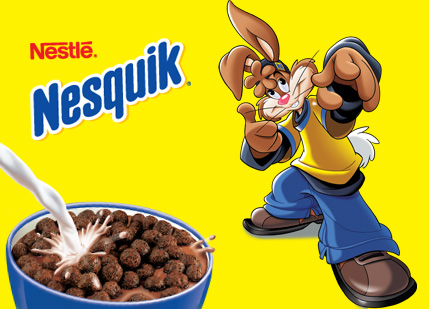
Class Acts
In Trump’s world, a Class Act is anyone who does things The Right Way. This is an ephemeral quality to be sure, but one sure way to do things the right way is to be a Troop. Colonel Sanders is, of course, his all-time favorite service member (the original Colonel, not the recent gender-bending rebrands, which upset him about as much as Spuds Mackenzie’s implied queerness). He admires Colonel Sanders both for the military title he didn’t actually earn and his habit of wandering into KFCs and berating the employees in a demented rampage.
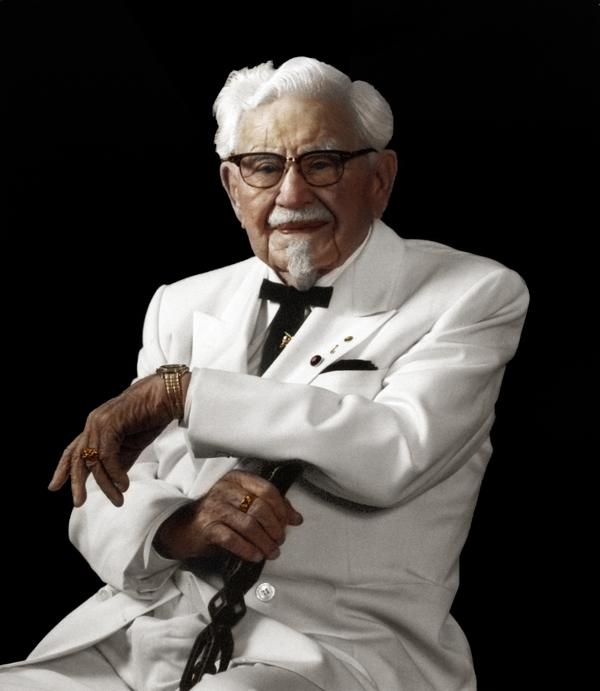
Trump extends similar respect to other members of the armed forces and law enforcement, like Cap’n Crunch, McGruff the Crime Dog, Officer Big Mac, and Twinkie the Kid. And though they are not food-related characters, he also thanks the Crash Test Dummies for their brave service.
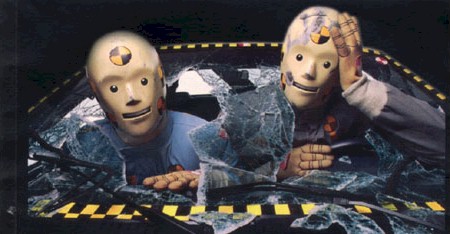
As someone who once smacked his kid for not wearing a suit to a baseball game, Trump greatly respects the advertising icons who are steeped in classic sartorial elegance. A man of means must dress like one, as do Mr. Peanut, Julius Pringles and Coke advocate Max Headroom. Among this crowd, he believes no one can measure up to the standard of style set by Mac Tonight, who croons about the delights of a midnight Big Mac with Sinatra-like suaveness. (Trump is also a big fan of Mac Tonight’s other incarnation!)
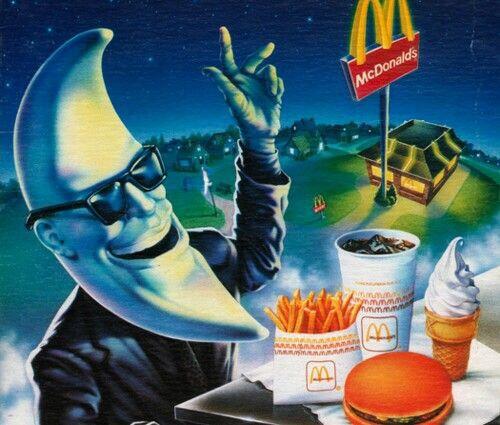
Scares Him = Not Good
Though Trump will never admit to being intimidated by anyone or anything, some of his most hated commercial icons are figures who frighten or unsettle him. Despite his deep love of McDonalds, there are quite a few McDonaldland characters who disturb him—including but not limited to Birdie The Early Bird (freak of nature), the Fry Guys (need haircuts), and Grimace (too ethnic).
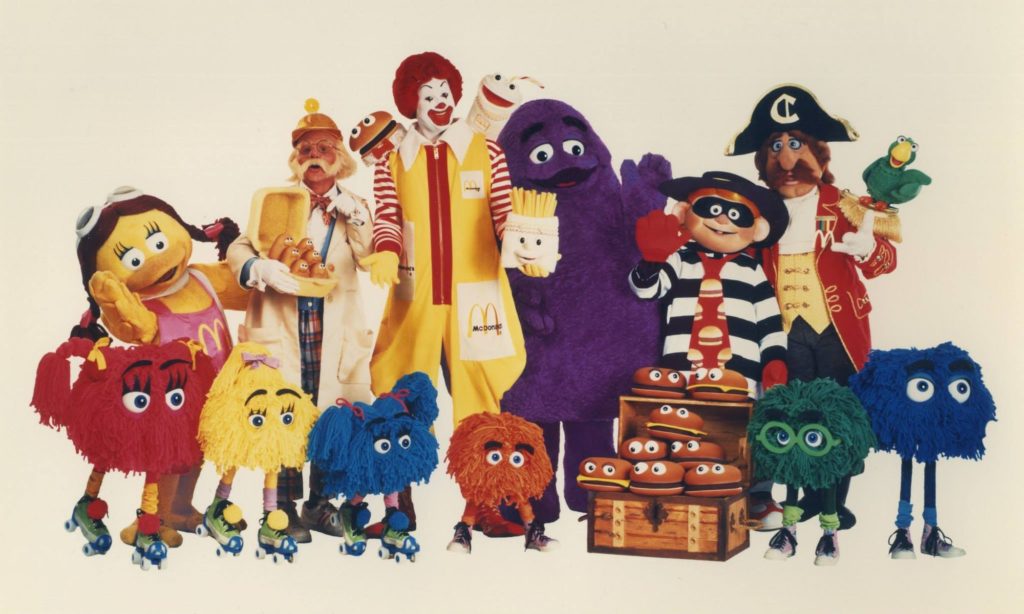
Trump finds any claymation or animatronic characters deeply upsetting, as he cannot wrap his head around these animation concepts and so believes the characters are actually alive. This includes the Hamburger Helper, the Pillsbury Doughboy, and the California Raisins (who he also dislikes for other reasons).
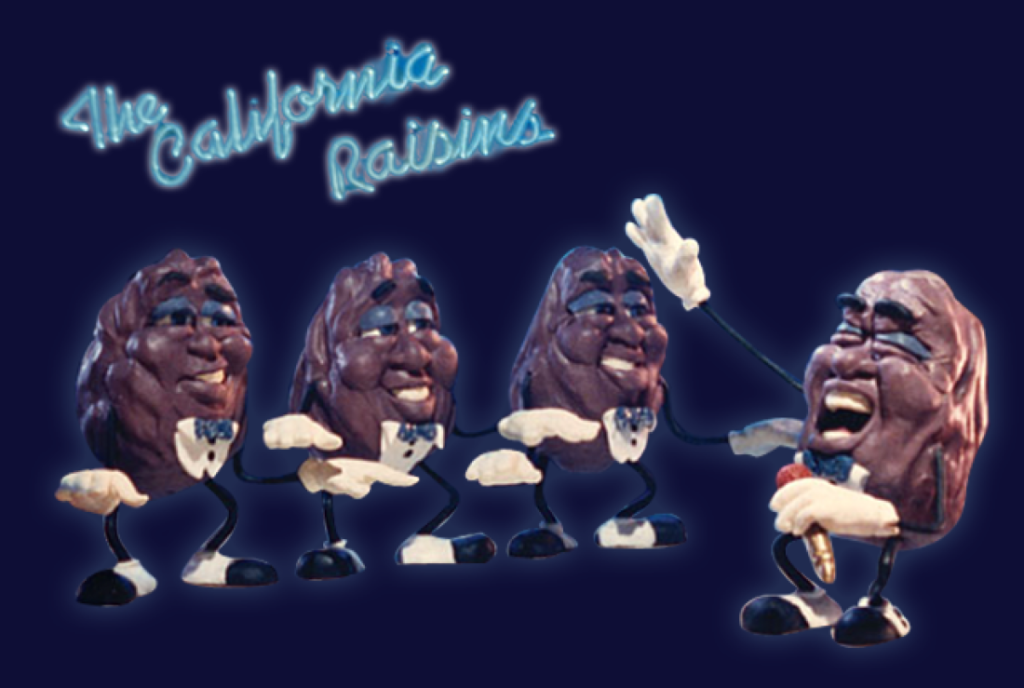
Trump is confused by magic, since he has the same notion of object permanence as a six month old, and so he is frightened by “magical” characters like Fruit Pie the Magician and, to a lesser extent, Lucky the Leprechaun (though he does appreciate Lucky’s deftness at tricking children and hoarding his gold). He mistrusts the Keebler Elves because their tiny size brands them as “sneaky” in his mind, an assessment that may explain his dismissal of Jeff Sessions.

But possibly his most hated food character is the Raisin Bran Sun, who he fears will pelt the earth with millions of grapes hardened by radiation, hurtling toward us at terminal velocity from his titanic scoops. In truth, Trump’s failure to acknowledge climate change is not a deliberate ignorance of scientific evidence or the sign of a brain that gets smoother every day, but actually a power move similar to his approach to North Korea: If he lets the sun know we fear him, then he will know we are weak. Our only defense against this monster’s threat of a raisin rain of death is feigned indifference to a future of boiling oceans, submerged cities, and a desperate shortage of Famous Bowls.

